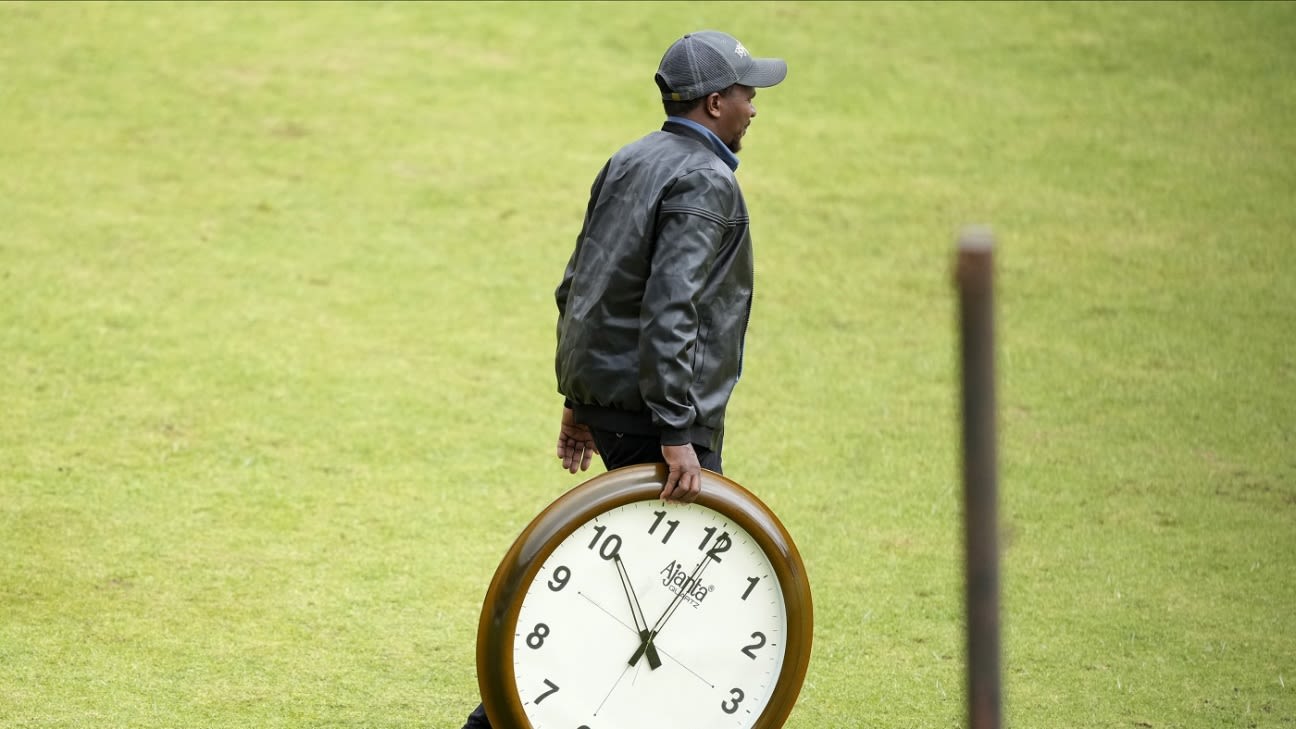ICC to introduce stop clock to regulate pace of play
In a radical step to regulate the pace of play, the ICC has said it will experiment with having a stop clock between overs. A penalty of five runs will be imposed on the bowling side if they fail three times in an innings to start the new over within a minute.
The move, which was approved by the chief executives committee, will be restricted to men’s ODIs and T20Is, and will be tested on a “trial basis” for six months between this December and April 2024.
“The clock will be used to regulate the amount of time taken between overs,” the ICC said in a media release on Tuesday. “If the bowling team is not ready to bowl the next over within 60 seconds of the previous over being completed, a five-run penalty will be imposed the third time it happens in an innings.”
The third umpire, through a timer, regulates the time while accounting for any stoppages, before relaying it to the on-field match officials. The rule was introduced in T20Is in January and in ODIs during the World Cup Qualifiers in June-July earlier this year. That sanction is in addition to monetary fines teams have to pay for slow over rates under the ICC’s playing conditions.
The clock, Ponting, at the time, had explained would not be operation during an over. “It is the dead time in the game, so at the end of the over the fielders and the bowlers have to be back in the position and ready to bowl at a certain time. That is a non-negotiable. The same with the new batsman coming to the crease – the bowling team has to be ready when the batsman gets there and he has had certain amount of time.”
For all the latest Sports News Click Here

